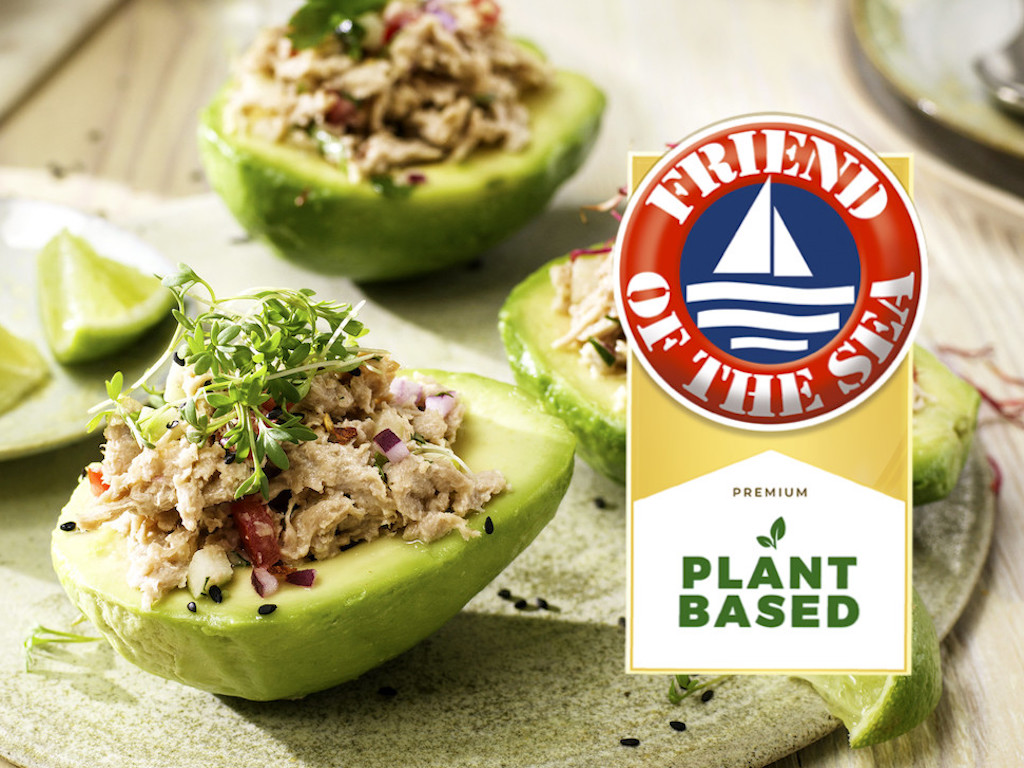“Having a globally accepted sustainable certification ecolabel on products will support companies achieving true trust from consumers,” added Amod Ashok Salgaonkar, an international advisory board member at WSO. “It will open more roads for doing sustainable business in the global market.”
To gain accreditation under the new Golden Standard, plant-based seafood companies must demonstrate well-organised environmental management, ecosystem conservation efforts, reduction in the use of synthetic substances, water conservation, minimising land operations, the use of renewable energy, measures to lower carbon emissions and social responsibility.
These standards can also be applied to certify plant-based meat products, with companies that successfully pass these assessments being awarded a Friend of the Earth certification Golden Standard for sustainable Plant-Based Meat.
The collaboration between WSO and GFI further solidifies the position of alternative seafood makers on the global market, with major food companies and investors seeing the move as an indicator of the strength of the sector. With the more established plant-based meat retail category already ballooning to US$939 million in the U.S. alone, there is great potential for the now fast-growing alternative seafood market to head in a similar direction.
The World Sustainability Organisation (WSO) and the Sustainable Seafood Initiative under the Good Food Institute (GFI) have teamed up to establish a joint certification program for plant-based seafood. It will be recognised under a new “Golden Standard” as part of the Friend of the Sea certification by the WSO, which will help plant-based seafood brands better communicate to consumers the sustainability of their products.
First announced at GFI India’s recent Smart Protein Summit, the new Friend of the Sea Golden Standard will mean that plant-based seafood brands can certify their products according to the sustainability criteria outlined by the WSO’s agriculture standards. The certification is set to boost consumer confidence and awareness about the sustainability advantages of plant-based seafood alternatives compared to its conventional counterparts.
“Intensive agriculture practices contribute to the loss of agricultural and natural biodiversity, degrading ecosystems and causing a reduction in animal and plant species. Such activities are also resulting in increased greenhouse gas emissions, among other concerns,” explained Dr. Paolo Bray, founder and director of the WSO. “The Friend of the Sea Golden Standard for plant-based seafood will assure consumers that products have been made by adopting sustainable practices without harming the environment.”
The Friend of the Sea Golden Standard for plant-based seafood will assure consumers that products have been made by adopting sustainable practices without harming the environment.Dr. Paolo Bray, Founder & Director of the WSO
“Having a globally accepted sustainable certification ecolabel on products will support companies achieving true trust from consumers,” added Amod Ashok Salgaonkar, an international advisory board member at WSO. “It will open more roads for doing sustainable business in the global market.”
To gain accreditation under the new Golden Standard, plant-based seafood companies must demonstrate well-organised environmental management, ecosystem conservation efforts, reduction in the use of synthetic substances, water conservation, minimising land operations, the use of renewable energy, measures to lower carbon emissions and social responsibility.
These standards can also be applied to certify plant-based meat products, with companies that successfully pass these assessments being awarded a Friend of the Earth certification Golden Standard for sustainable Plant-Based Meat.
The collaboration between WSO and GFI further solidifies the position of alternative seafood makers on the global market, with major food companies and investors seeing the move as an indicator of the strength of the sector. With the more established plant-based meat retail category already ballooning to US$939 million in the U.S. alone, there is great potential for the now fast-growing alternative seafood market to head in a similar direction.
Having a globally accepted sustainable certification ecolabel on products will support companies achieving true trust from consumers.Amod Ashok Salgaonkar, International Advisory Board Member at WSO
Already hopping on the trend is food industry giant Nestlé, who recently made its first foray into the alternative seafood market with a plant-based tuna launched under its Garden Gourmet brand.
“The segment’s future is promising and we expect to see large scale investment commitments by the who’s who of the industry,” said Bray.
Varun Deshpande, the managing director of GFI India, says that Asia will be a key region driving this growth. “With a significant proportion of that demand coming from Asia as incomes in the region continue to rise, the growth of alternative seafood presents tremendous promise to address this demand sustainably, while simultaneously creating future-proof income for industry incumbents and farmers.”
Article Credit: greenqueen
